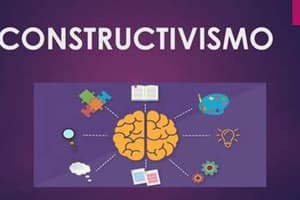Podcast
Questions and Answers
What is the primary idea of constructivism in learning?
What is the primary idea of constructivism in learning?
- Knowledge is determined solely by the teacher.
- Learning is a passive acquisition of knowledge.
- Knowledge is constructed in the mind of the learner. (correct)
- Learning involves only memorization of facts.
How do learners build their new understanding according to constructivist principles?
How do learners build their new understanding according to constructivist principles?
- By connecting new information with previous knowledge. (correct)
- By relying solely on rote memorization.
- By following the teacher's instructions without questioning.
- By individually studying without any social interaction.
Which statement best describes the nature of learning in a constructivist approach?
Which statement best describes the nature of learning in a constructivist approach?
- Learning is about acquiring facts without reflection.
- Learning is an active process involving social interactions. (correct)
- Learning is an isolated activity with limited peer interaction.
- Learning is a passive process where students receive information.
In constructivism, how do children typically learn best?
In constructivism, how do children typically learn best?
What role do prior experiences play in the constructivist learning process?
What role do prior experiences play in the constructivist learning process?
Flashcards
Constructivism
Constructivism
The idea that learners actively build their own understanding by connecting new information with existing knowledge and experiences.
Learning as a Constructive Process
Learning as a Constructive Process
Learning is not just receiving information, but actively creating meaning by connecting new ideas to what you already know.
Prior Knowledge in Constructivism
Prior Knowledge in Constructivism
Learners use their previous knowledge and experiences to interpret and make sense of new information.
Active Learning in Constructivism
Active Learning in Constructivism
Signup and view all the flashcards
Social Learning in Constructivism
Social Learning in Constructivism
Signup and view all the flashcards
Study Notes
Constructivism Overview
- Constructivism is a learning approach based on background knowledge, connecting new knowledge, and student-centered learning.
- It focuses on students learning how to learn.
- It's not teacher-centered or about isolated skills; knowledge is built by students.
Constructivism Characteristics
- Collaboration is a core characteristic.
- Students start with relevant problems.
- Interdisciplinary exploration and use of primary sources are key.
- High-order thinking tasks (HOT tasks) are used.
Principles of Constructivism
- Learning is a process of constructing new knowledge. It's not just collecting information.
- Each learner builds their own knowledge individually as they learn.
- Learners use their previous knowledge and experiences to construct new understanding.
- Learners connect current information and experiences with past knowledge.
- Learning is an active process (not passive).
- Learning is social; students interact with peers, teachers, and experts to build knowledge.
- Students learn through experience, experimentation, reading, discussions, asking, listening, thinking.
- Students reflect and express themselves individually and with others in speech, movement, and writing.
- Constructivism provides strategies to promote learning.
Studying That Suits You
Use AI to generate personalized quizzes and flashcards to suit your learning preferences.
Related Documents
Description
This quiz explores the fundamentals of constructivism, a learning approach emphasizing how students learn rather than simply acquiring knowledge. Key characteristics such as collaboration, interdisciplinary exploration, and high-order thinking tasks will be highlighted. Discover how these principles shape the learning process and facilitate deeper understanding.




